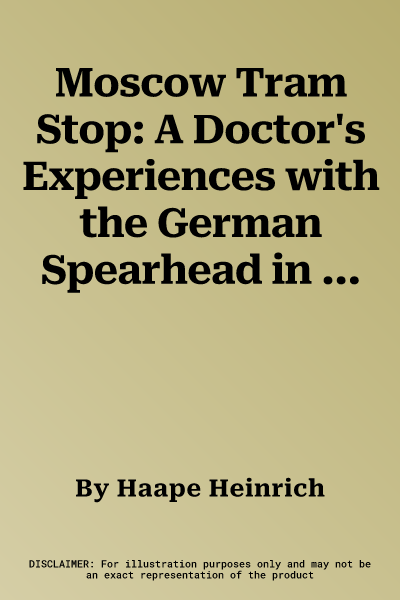Haape Heinrich
(Author)Moscow Tram Stop: A Doctor's Experiences with the German Spearhead in RussiaHardcover, 15 April 2020

Qty
1
Turbo
Ships in 2 - 3 days
Only 1 left
Free Delivery
Cash on Delivery
15 Days
Free Returns
Secure Checkout

Print Length
468 pages
Language
English
Publisher
Stackpole Books
Date Published
15 Apr 2020
ISBN-10
081173790X
ISBN-13
9780811737906
Description
Product Details
Author:
Book Format:
Hardcover
Country of Origin:
US
Date Published:
15 April 2020
Dimensions:
25.65 x
18.54 x
3.81 cm
ISBN-10:
081173790X
ISBN-13:
9780811737906
Language:
English
Pages:
468
Publisher:
Weight:
997.9 gm